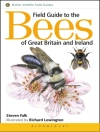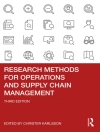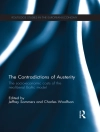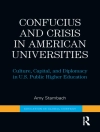From paintings and food to illness and icebergs, science is happening everywhere. Rather than follow the path of a syllabus or textbook, Andrew Morris takes examples from the science we see every day and uses them as entry points to explain a number of fundamental scientific concepts – from understanding colour to the nature of hormones – in ways that anyone can grasp. While each chapter offers a separate story, they are linked together by their fascinating relevance to our daily lives.
The topics explored in each chapter are based on hundreds of discussions the author has led with adult science learners over many years – people who came from all walks of life and had no scientific training, but had developed a burning curiosity to understand the world around them. This book encourages us to reflect on our own relationship with science and serves as an important reminder of why we should continue learning as adults.
Praise for Why Icebergs Float
‘Asking questions is an important scientific skill and sometimes we can only understand something when we can find the language to ask the right questions; books like this can be really helpful in this respect….This book is one of UCL’s open access books. This means that it can be downloaded as a free PDF from the UCL Press website. The commitment to making scientific works such as this freely available is very welcome. This book is very accessible and deserves to reach a wide audience.’
School Science Review
‘Morris says in the prologue: ‘If you come away from this book with a greater interest in science and enhanced confidence about tackling it, the book will have served its purpose.’ So, don’t be afraid of science and give Why Icebergs Float a chance. You will absolutely enjoy it.’
Chemistry World
‘[Why Icebergs Float] draws on experiences and first-person narratives of adult learners who – out of genuine curiosity or embarrassment at their levels of scientific ignorance – have sought to catch-up on lost school science and get a better understanding of their surroundings as a result.’
Education Journal
‘The approach illustrates beautifully the influence of language on understanding. The author makes clear how common language can be misleading when scientists have used everyday words but given them very specific meanings.’
Physics Education
‘I had fun reading this book. If it makes science more accessible to more people, that’s surely a good thing.‘Speculative Stories
Mục lục
Contents
List of Figures
Introduction
Getting the most from this book
1. Foods We Love and Hate
The chemistry and biology of taste
2. Why Old Masters Fade
Chemicals that give us colour
3. Cuts are Red, Veins are Blue . . .
How blood delivers our vital oxygen
4. The Dual Nature of Light
Particle or wave? That is the question
5. Models
Developing models or finding the truth?
6. How We See
From the eye to the brain
7. The Brain
What it’s made of, how it works
8. Hormones
What they are, what they do
9. Reflections on Molecules and the Body
Understanding the complexity of molecular mechanisms
10. Bacteria, Viruses and Antibiotics
Why you can’t take a pill for ’flu
11. Floating and Density
Why icebergs float
12. Tides and Gravity
Holding the universe together – from Newton to Einstein
13. Energy
The scientific angle on an everyday concept
14. Energy on the Move
How heat energy gets around
15. Energy for Life
Mitochondria and the ‘three- parent baby’
16. Electricity
Where does it come from, how does it work?
17. MRI and the Brain
Brain scanning and what it reveals: discussion with a cognitive neuroscientist
18. Animal Culture
Defining culture: discussion with an anthropologist
Epilogue
Reflections on what’s been learned and how to take it forward
Appendix: Atoms, Elements and Molecules
Briefing on the building blocks of matter
Further Resources
Index
Giới thiệu về tác giả
Andrew Morris has been running science discussion groups since 2002. Originally a science teacher, he studied physics at University College London and completed a doctorate in molecular biophysics at the University of Leeds. His 2015 book is titled Getting to Grips with Science: A Fresh Approach for the Curious.












